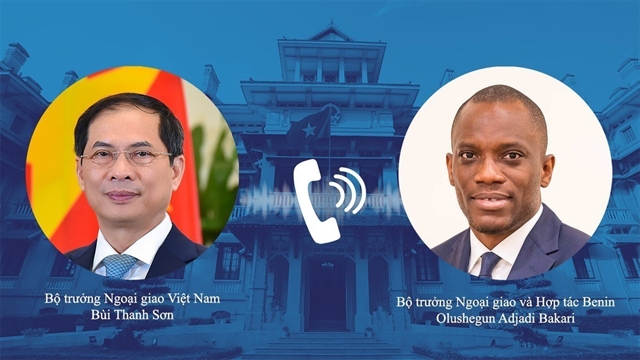 Politics & Laws
Politics & Laws

The Vietnam News Agency (VNA) chose the following as the 10 most notable events of 2017
The Vietnam News Agency (VNA) chose the following as the 10 most notable events of 2017:
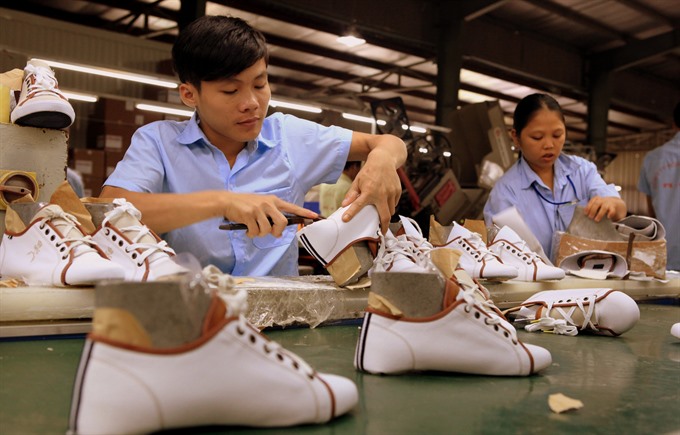
|
1. Overcoming difficulties to meet all 13 socio-economic targets set by the National Assembly:
For the first time in years, Việt Nam completed and surpassed all 13 socio-economic targets set by the National Assembly. The macro-economy was stable, inflation was kept under control, State budget collection and other major economic targets were met. A Gross Domestic Product (GDP) growth of 6.81 per cent was achieved and export revenues exceeded US$200 billion. The country attracted more than $33 billion in foreign direct investment (FDI), welcomed 13 million international tourists and saw over 120,000 new businesses established. Such outcomes enabled implementation of resolutions adopted at the 12th Party Congress.
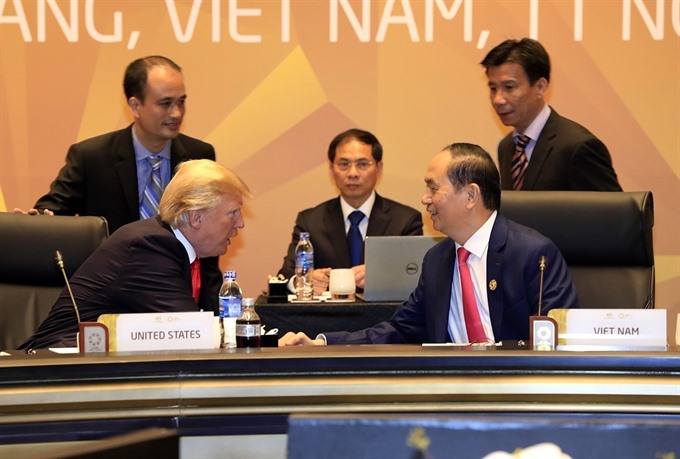
|
2. Hosting APEC 2017, promoting regional co-operation and enhancing nation’s prestige:
Themed “Creating New Dynamism, Fostering a Shared Future”, APEC Việt Nam Year 2017 was a comprehensive success. Major orientations were mapped out to propel economic cooperation in Asia-Pacific region and further deepen relations between Việt Nam and other APEC member economies. The event enhanced Việt Nam’s international standing.
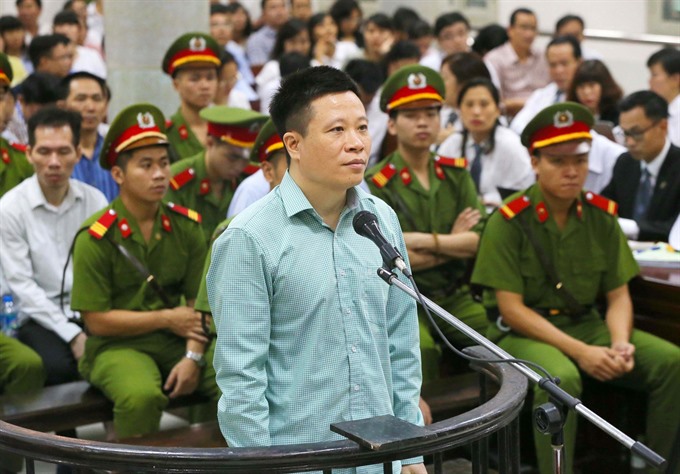
|
3. Major corruption cases cracked:
In 2017, several serious corruption cases were brought to book, like the Oceanbank case involving Hà Văn Thắm and his 50 accomplices, the case of Châu Thị Thu Nga and her nine accomplices in the Housing Group, the dismissal of Đinh La Thăng from the Politburo and suspension of his NA deputy status, his arrest and launch of proceedings against him, investigating wrongdoings of many leaders of the State-owned Việt Nam National Oil and Gas Group, forcing organisations and individuals involved to bear responsibility before the law. The indictment of high-ranking officials, incumbent or retired, demonstrated there is no “prohibited zone” in the fight against corruption, and affirmed the determination of the whole political system and society to combat all forms of corruption.
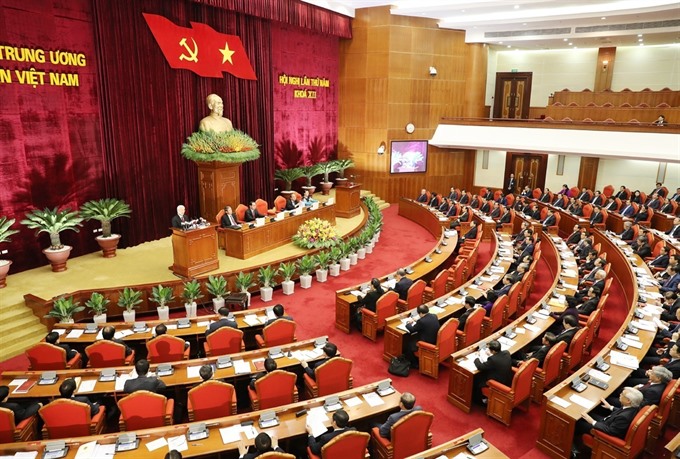
|
4. Promulgating a Resolution defining the crucial role of the private economic sector:
On June 3, 2017, General Secretary of the Communist Party of Việt Nam (CPV) Nguyễn Phú Trọng signed Resolution 10-NQ/TW on developing the private sector as an important driving force of the socialist-oriented market economy. On October 3, the Government issued Resolution 98/NQ-CP promulgating the Government’s action plan to implement the Party resolution. Accordingly, the State will remove barriers and prejudice, create favourable conditions for the private economic sector to develop in a healthy, effective and sustainable manner. Việt Nam aims to have at least one million firms by 2020, over 1.5 million by 2025, and at least two million by 2030. The private economic sector is expected to contribute about 50 per cent, 55 per cent and 60-65 per cent to the GDP in 2020, 2025 and 2030, respectively.
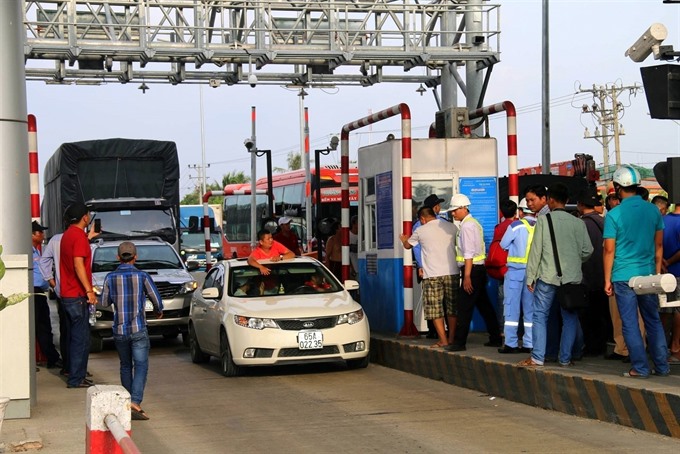
|
5. Several BOT transport projects stirred controversy:
In 2017, shortcomings in some build-operate-transfer (BOT) transport projects attracted widespread public criticism. Many vehicle drivers and residents protested the location of and charges levied by several BOT toll stations, they objected to paying fees, prompting Prime Minister Nguyễn Xuân Phúc to ask responsible agencies to strictly address the problems and revise inappropriate procedures.
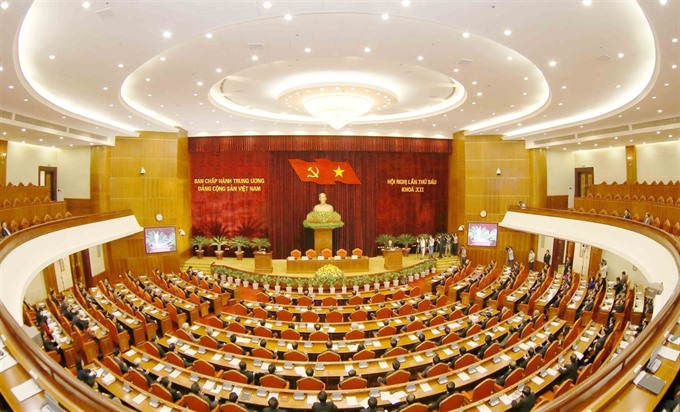
|
Resolution 18-NQ/TW on reforming and reorganising the political apparatus towards greater efficiency and effectiveness, was implemented widely, initiating changes in recruiting, appointing and promoting officials; and accelerating decentralisation and administrative reforms. The Party Central Committee agreed to terminate the operations of the Northwest, Central Highlands, and Southwest Steering Committees.
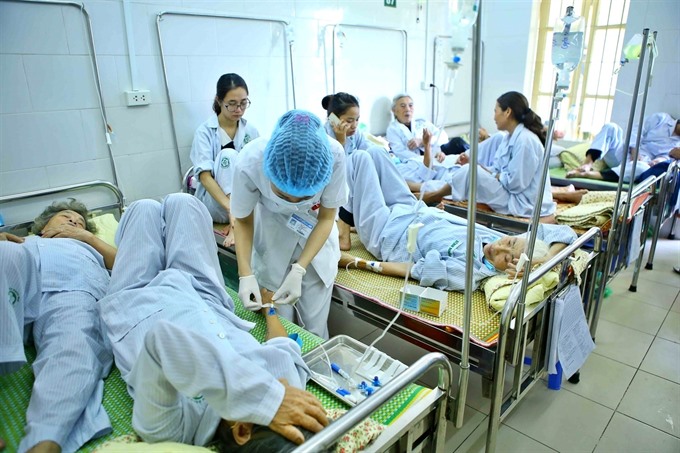
|
7. Health sector tackles dengue fever epidemic, serious medical incidents:
In 2017, a dengue fever epidemic broke out and spread across 63 cities and provinces. Of 163,600 cases recorded, 138,327 patients were hospitalised and 30 people died. The health sector also faced serious medical incidents like the deaths of eight dialysis patients in the northern province of Hoà Bình and four infants in Bắc Ninh Province, as also violations in the management of medicine prices and use of cancer drugs.
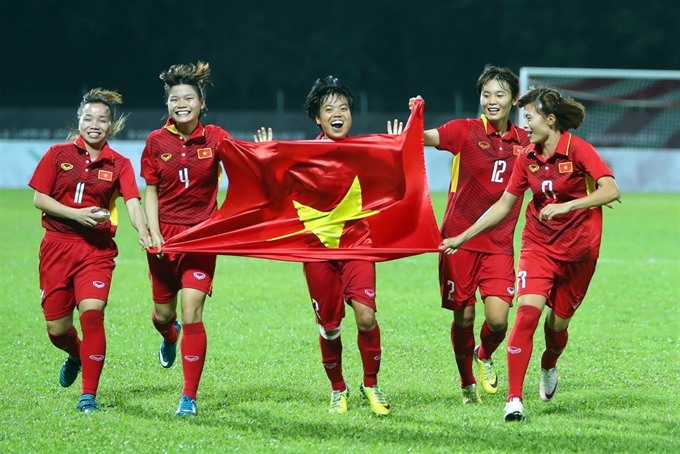
|
8. Việt Nam strengthened its position at regional and global sports events:
Vietnamese athletes ranked third with 58 gold, 50 silver and 60 bronze medals at the 29th Southeast Asian Games (SEA Games 29) held August 19-31 in Malaysia. Track-and-field athletes won big with 17 gold medals, with swimmers alone claiming 10 of them.
Weightlifter Lê Văn Công won a gold medal at the 2017 World Para Powerlifting Championships in Mexico, breaking his own world record in the 49kg men’s category and becoming the top disabled athlete in the history of Vietnamese sport with a collection of gold medals at Southeast Asian, Asian and world events.
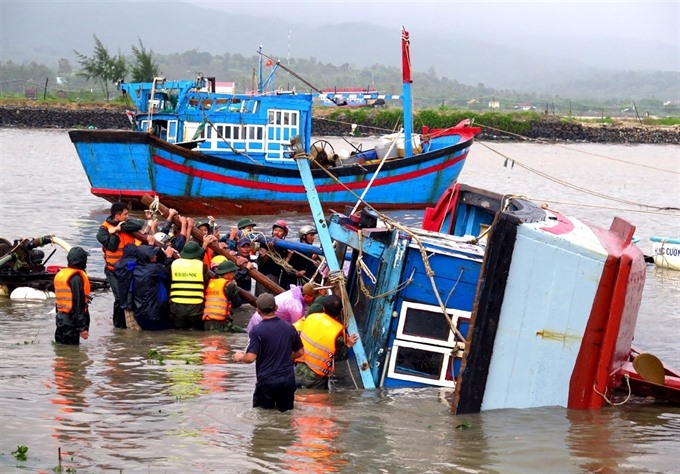
|
Storm Damrey, the strongest one to hit Việt Nam in years, made landfall on the south-central coast, leaving 107 people dead, 16 missing, 342 injured and 165,000 houses damaged. The Ministry of Agriculture and Rural Development estimated losses at about VNĐ22 trillion (nearly $1 billion).
In 2017, Việt Nam was hit by 16 storms that caused severe human and material losses (375 dead and missing, 636 injured, damage estimated at VNĐ51.6 trillion).
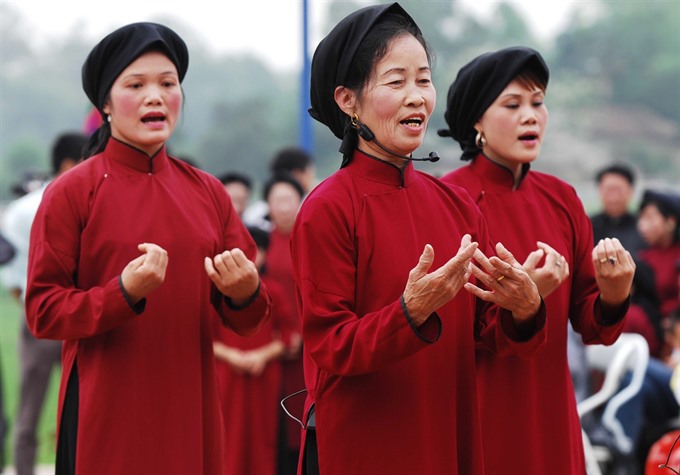
|
10. UNESCO recognition of two more Vietnamese folk singing traditions:
At its December 7-8 session, the 12th session of the UNESCO Inter-governmental Committee for the Safeguarding of the Intangible Cultural Heritage held in Jeju, the Republic of Korea, two Vietnamese singing traditions were added to the Representative List of the Intangible Cultural Heritage of Humanity: the “xoan" singing from the northern province of Phú Thọ; and “bài chòi” singing in the central region. Xoan singing was taken off UNESCO’s List of Intangible Cultural Heritage in Need of Urgent Safeguarding thanks to great efforts expended to preserve this heritage over the past six years. — VNS

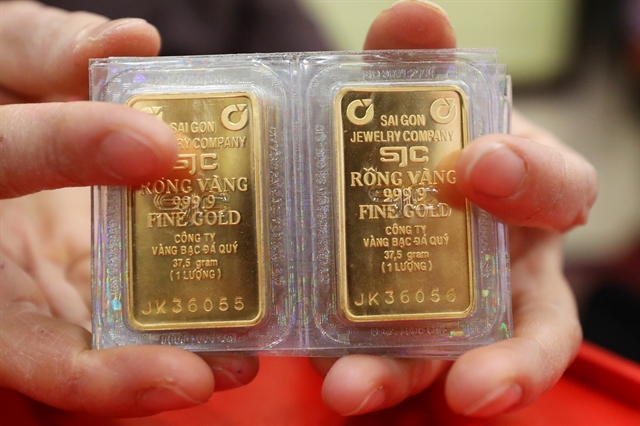



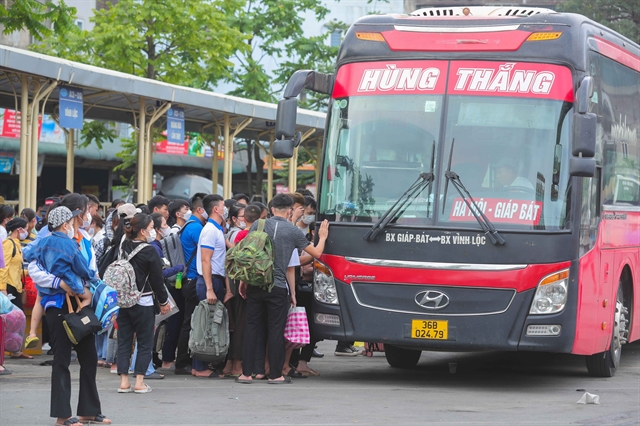



.jpg)